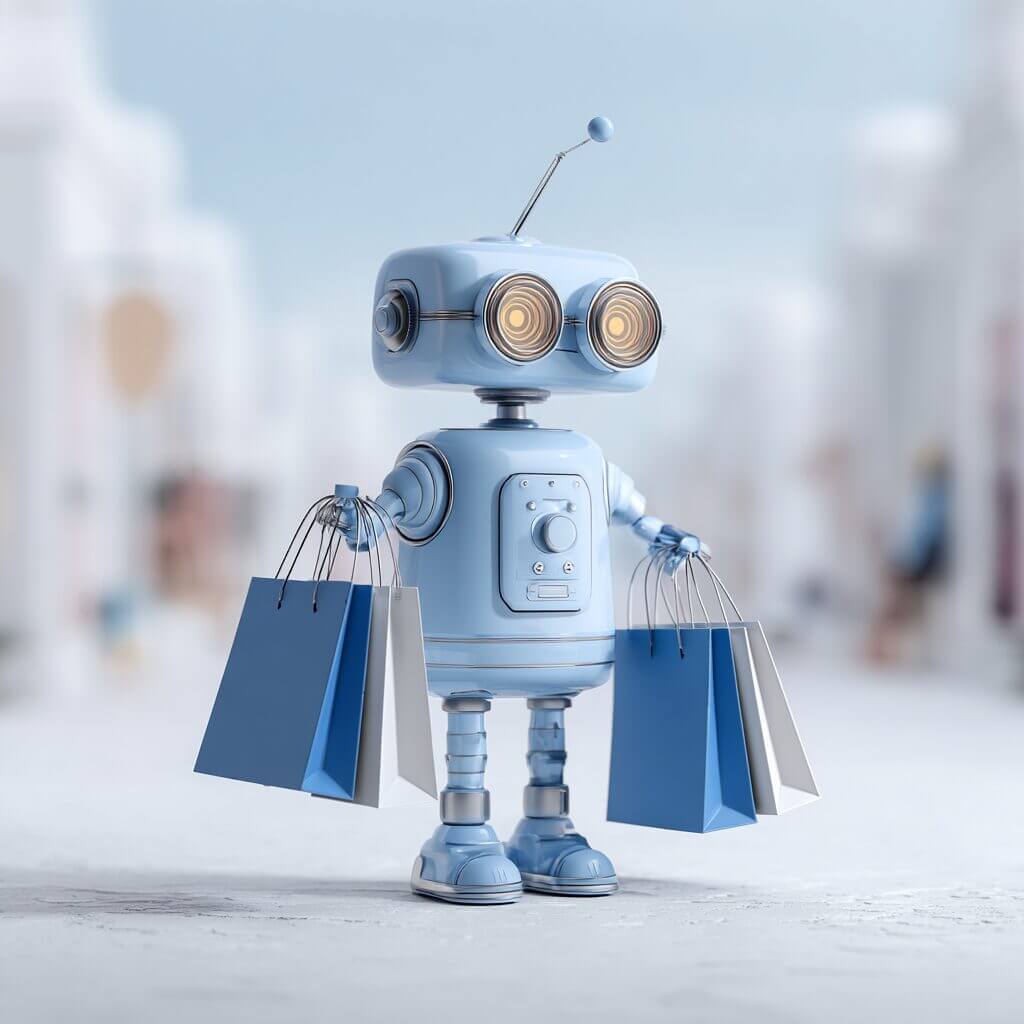10 Best Organic Marketing Strategies For E-Commerce Growth
Growing your E-Commerce business doesn’t have to mean constantly spending on ads.
Artificial intelligence is no longer a future promise; it’s already reshaping E-Commerce at a rapid pace.
AI is helping online retailers in many ways. It improves search tools and predicts prices. This allows retailers to work faster. They can connect better with customers and grow their operations accurately.
More than half of American shoppers are using AI chatbots. They are using platforms like ChatGPT or Gemini for online shopping. From a commercial standpoint, 95% of E-Commerce firms leveraging AI report substantial gains on their investment.
Whether it’s automating customer service or tailoring product recommendations, AI is redefining how online storefronts operate. In this article, we will look at how E-Commerce companies can use AI. This can help them improve workflows, personalise experiences, and grow effectively.

AI in E-Commerce isn’t just a shiny add-on. It’s a transformative technology impacting everything from marketing to logistics to customer support.
To understand how it fits into your strategy, it helps to break down its main components:
As these technologies become more accessible, even small and mid-sized businesses are using them to reduce manual tasks, increase sales, and improve customer experience.
One of the most exciting shifts is the emergence of agentic commerce AI systems that don’t just automate tasks but act independently, making decisions and learning in real time.
Unlike traditional rule-based automation, agentic AI operates with intent. It can manage product flows, adjust pricing, or reorder inventory without constant human oversight.
This isn’t just experimental. By 2028, one in three enterprise software platforms will feature agentic AI, signalling a major shift toward self-optimising E-Commerce systems. For online retailers, this could mean storefronts that adapt dynamically, smarter, faster, and more efficient than ever.
AI adoption is delivering measurable results for companies of all sizes. Research shows E-Commerce brands using AI see more than 25% improvements in customer satisfaction, revenue growth, or operational cost savings.
1. Targeted Marketing and Advertising
AI enables E-Commerce businesses to move past broad campaigns and deliver personalised experiences that convert. AI looks at purchase history, behaviour, and engagement. This helps send the right message to the right customer at the right time.
Result: stronger brand awareness and higher ROI, 81% of marketers say AI has boosted visibility.
Personalisation builds loyalty. Businesses using AI-driven communications see up to 30% improvements in retention. By tailoring recommendations and outreach to individual preferences, AI helps brands stay relevant and keep customers coming back.
AI-powered automation removes routine tasks from your team. It manages product suggestions, loyalty program triggers, and customer support routing. The result is leaner operations and more time for strategy.
AI accelerates the sales cycle with tools like predictive lead scoring, real-time buyer insights, and intent tracking. Companies using AI in sales cut cycle times by up to 25% and reduce operational costs by as much as 60%.
AI is already at work in countless E-Commerce applications. Here are the most common and most valuable:
Jumping into AI without a plan can lead to wasted time and money.
Artificial intelligence is now essential for E-Commerce companies. It helps them grow, personalise better, and compete in today’s AI-driven market.
Adoption is speeding up quickly. McKinsey reports that 78% of businesses now use generative AI. This is up from 55% last year. For E-Commerce, the message is clear: the time to act is now.
By starting small and focusing on key use cases, your business can use AI. This will help you create a storefront that is smarter, faster, and ready for the future.
Growing your E-Commerce business doesn’t have to mean constantly spending on ads.
The answer to can eCommerce be profitable’ is dependent on what you put in, for example if you have an eCommerce store with 1 page, the chances of that becoming profitable is next to none.
The 2025 holiday season presents opportunities for growth, but success will require smarter, more targeted strategies.